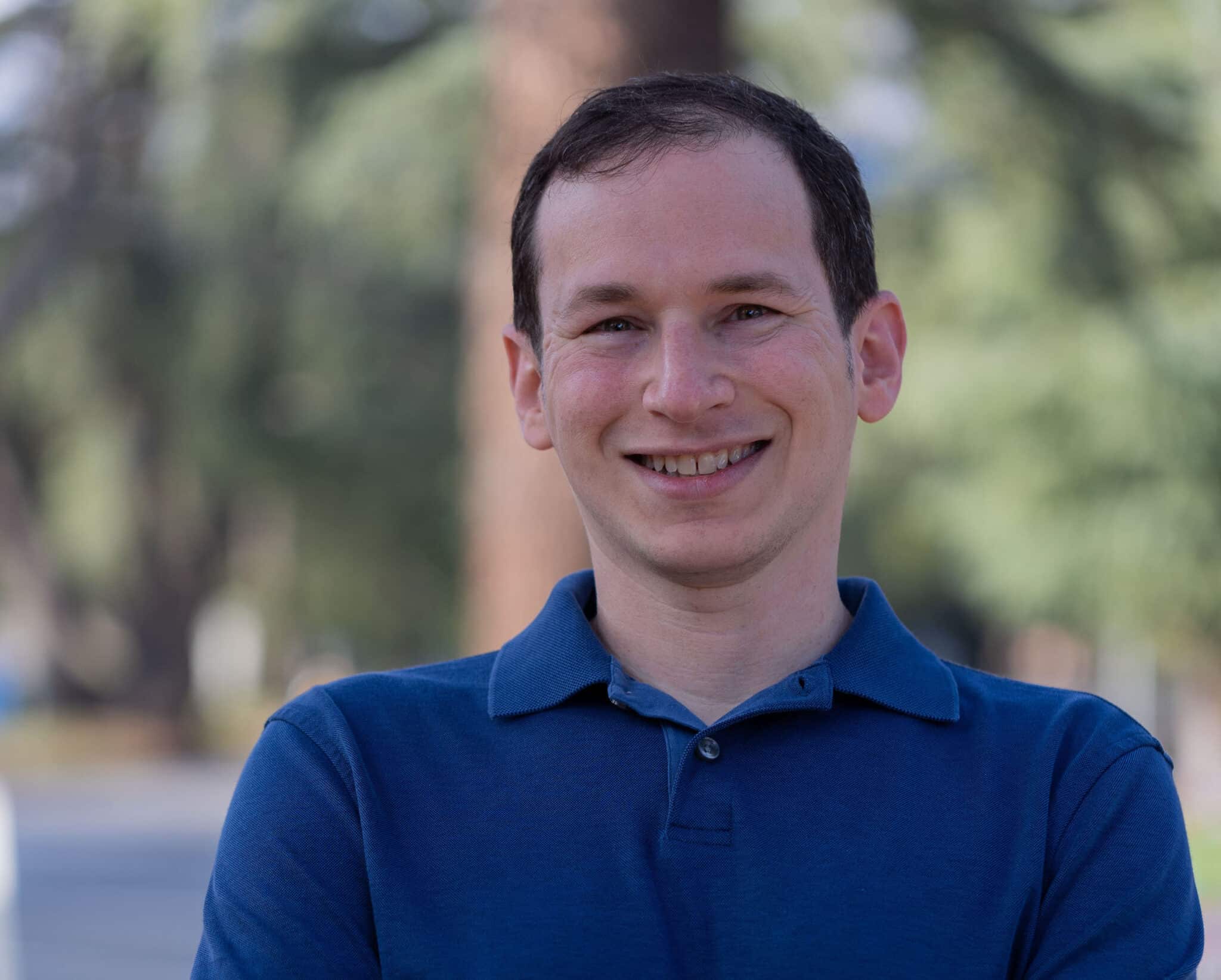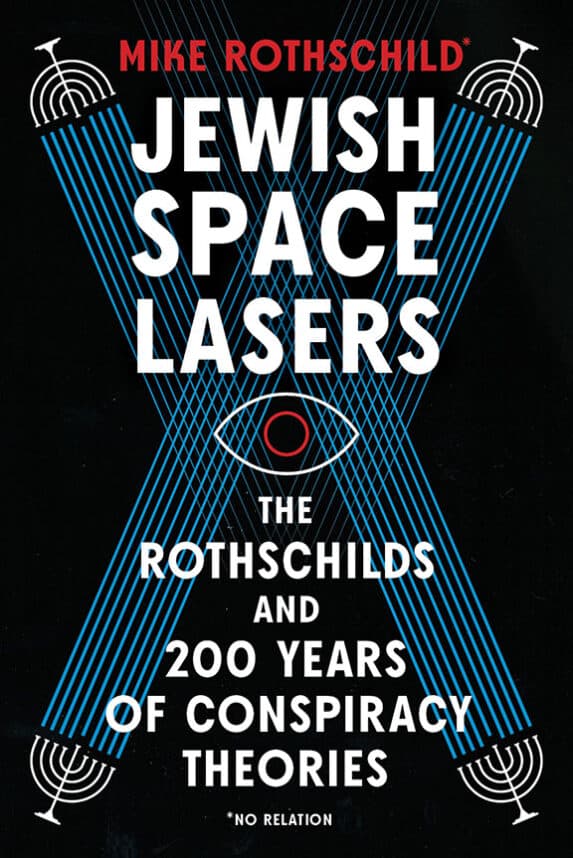 Mike Rothschild (Photo by Terica Adkins)
Mike Rothschild (Photo by Terica Adkins) Back in 2018, before Marjorie Taylor Greene was a household name and a member of Congress, she took to Facebook to share a convoluted conspiracy theory. She suggested that a solar energy laser generator was being used by Pacific Gas and Electric, in collaboration with figures like Jerry Brown and Dianne Feinstein’s husband, to clear land in rural California for a $77 billion high-speed railway. She highlighted a connection between a board member of PG&E and Rothschild, Inc. The insinuation was clear to many: The Rothschilds, a historically wealthy Jewish family, were behind this nefarious plot.
Greene’s post, which had initially vanished into the vast expanse of the internet, was later unearthed by a Media Matters researcher after she was elected to Congress in 2020. While Greene never used the term “Jewish Space Laser” in her post, the phrase caught on. This incident was not isolated. It was part of a broader trend of directed energy weapon conspiracy theories that were circulating in relation to the California wildfires during 2018 and 2019. The “Jewish Space Lasers” narrative, however, stood out for its blatant evocation of age-old antisemitic tropes.
Journalist Mike Rothschild, bearing a surname synonymous with wealth and power, has delved deep into these myths. Although he clarifies he has no direct lineage to the famed Rothschild banking dynasty, his exploration into the conspiracy theories surrounding the family is both profound and personal.
Growing up in the Chicago suburbs, Rothschild was always conscious of the historical weight his name carried. “I knew there was a wealthy Rothschild family, but we weren’t related,” he said. It wasn’t until college that Rothschild’s fascination with conspiracy theories began to take root. He became an avid listener of the Art Bell “Coast to Coast” AM radio show, which delved into topics such as UFOs, crop circles, and cattle mutilations. “I never believed any of it. But I was fascinated by it as storytelling, and kind of what mindset would drive someone to be attracted to something that repels most people,” he recalled.
After college, Rothschild moved to Los Angeles, initially pursuing a career in screenwriting. Around 2012, he began writing about conspiracy theories, at a time when such narratives, once considered fringe, began seeping into mainstream discourse. The rise of conspiracy theories during the Obama era, followed by the Trump presidency, the QAnon phenomenon, and the COVID-19 pandemic, further fueled his interest. “Now everybody seems to know somebody who believes one of these things,” Rothschild said.
A recurring theme in many conspiracy theories: A connection back to the Jews, with the Rothschilds often portrayed as the ultimate puppet masters.
 Rothschild observed a recurring theme in many of these theories: A connection back to the Jews, with the Rothschilds often portrayed as the ultimate puppet masters. “The Rothschilds are seen as the ultimate Jews, the kings of the Jews,” he noted. This realization led him to explore the history and legacy of the Rothschild family in depth, culminating in his book, “Jewish Space Lasers: The Rothschilds and 200 Years of Conspiracy Theories,” published by Melville House.
Rothschild observed a recurring theme in many of these theories: A connection back to the Jews, with the Rothschilds often portrayed as the ultimate puppet masters. “The Rothschilds are seen as the ultimate Jews, the kings of the Jews,” he noted. This realization led him to explore the history and legacy of the Rothschild family in depth, culminating in his book, “Jewish Space Lasers: The Rothschilds and 200 Years of Conspiracy Theories,” published by Melville House.
The Rothschild family’s meteoric rise during the Napoleonic Wars made them a prime target for conspiracy theorists. “When you have that amount of wealth accumulated that quickly, and you’re Jewish, the myths follow,” Rothschild explained. These myths, deeply rooted in antisemitism, have attributed a myriad of global events to the family, from the sinking of the Titanic to the emergence of the COVID-19 pandemic.
When asked about the prevalence of Rothschild conspiracy theories on the right versus the left, Rothschild noted, “Right now? It’s the right. This major uptick in antisemitism that we’re witnessing is very much driven by the far right, particularly online influencers.” However, he also highlighted that historically, spaces we’d now consider left-wing, such as the Socialist movement of the 1800s, were rife with antisemitism.
The digital age has amplified the reach and impact of conspiracy theories. While much of the discourse remains online, the real-world implications are undeniable. “We’re seeing an uptick in public antisemitism. Nazis marching in Florida, banners in Los Angeles proclaiming ‘Hitler was right,’ and public figures endorsing these sentiments,” Rothschild said.
The Rothschild conspiracy theories, while enduring, have seen evolutions. George Soros has emerged as a more contemporary target, often intertwined with Rothschild narratives. “You very often get references to both of them working together,” Rothschild explained. Despite the shift in focus, the underlying themes remain consistent, rooted in age-old stereotypes about Jews.
Rothschild also touched upon the internal debates within the Jewish community regarding figures like Soros. “Just because you’re Jewish doesn’t mean you have to agree with everything Soros or the Rothschilds do,” he said. However, he emphasized the distinction between legitimate criticism and antisemitic conspiracy theories.
While many, like Bigfoot or UFOs, are harmless and fun, others have deeper implications. “When you let it start to take over your life, it quickly becomes about something that’s being done to us. And when you start talking about somebody doing something to you, well, somebody has to be in charge of that, somebody has to be funding it, and it very quickly transitions into the same stereotypes about Jews.”
The question of ignorance often arises when confronting conspiracy theorists. Can someone genuinely claim they didn’t know the Rothschilds were Jewish or that their theory wasn’t about Jews but about a powerful family? Rothschild believes that such ignorance, especially from public figures, isn’t excusable. He emphasized that accountability is essential, citing Marjorie Taylor Greene’s inability to take responsibility for her statements as a prime example.
While the “Jewish Space Laser” theory has been a source of humor for many in the Jewish community, Rothschild warns against taking it lightly. The act of blaming a wealthy Jewish family for a natural disaster has historical precedents, often used to justify violence against Jewish communities. Dismissing such theories as mere jokes or attributing them to ignorance can be dangerous, as they normalize and perpetuate harmful stereotypes.
He emphasized the importance of recognizing and challenging these narratives in everyday life, especially when they’re presented as innocent or unintentional. Rothschild’s hope for his book is to educate readers about the origins and evolution of these conspiracy theories. He wants people to recognize the long history behind politicians or public figures blaming entities like Soros, the Rothschilds or the ADL. These aren’t new narratives but have been shaped and exploited over centuries. Recognizing these tropes and understanding their historical context is crucial in challenging and debunking them.
Rothschild acknowledged that some might still question his lineage. He clarified that his family’s origins are distinct from the banking Rothschilds and that there’s no historical basis for a connection. However, he also recognized that for many conspiracy theorists, such facts won’t make a difference. The challenge lies not just in presenting the truth but in changing deeply ingrained beliefs.






















 More news and opinions than at a Shabbat dinner, right in your inbox.
More news and opinions than at a Shabbat dinner, right in your inbox.